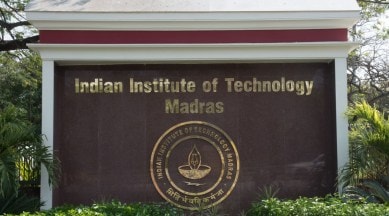IIT Madras to introduce facial recognition attendance system, app coordinating parent visits as part of suicide prevention initiative
The institute saw four cases of student suicides between February and July 2023.

In the forthcoming academic year starting August, IIT Madras will introduce two practices as part of its suicide prevention initiative — a face recognition attendance management system to identify students absent for prolonged periods of time and an app that will let parents have regular interactions with their children.
The institute saw four cases of suicides between February to July 2023. These efforts the institute says, will be part of its larger suicide prevention approach.
V Kamakoti, the director of IIT Madras, said the automated attendance system will deploy face-recognition devices and added that the data science programmes running at the institute would help in processing this data.
Saying the initiatives would not “intrude on anybody’s privacy,” Kamakoti said, “Attendance in class, mess, gym among all will be maintained. We will just consolidate that data to see patterns.”
“We are already taking attendance in some of those places. Now, it is just a matter of consolidating it with the automated process instead of the traditional register attendance,” he added.
The director said the approaches were developed keeping in mind the patterns in the cases of the last few suicides.
“It was found that the students did not go to mess. They did not eat. So, for two days if somebody does not eat, I should know so that I can check with the warden and the student’s friends,” he said.
About the app that will involve parents, Kamakoti said: “IITs have a competitive environment. It cannot be changed as it will reduce standards. At the same time, students should not feel pressured. We will have a system to remind parents to talk to their wards twice a week and record that they have talked and the kid is okay.”
Asked if such mandated interaction will add to parental pressure faced by some students, Kamakoti said, “If they are not involved, at least we will know that. We then will need to give that type of care also for the kid.”
Alongside these, the institute has introduced an eight-step initiative to identify and reduce stress.
These include: time-bound grievance redressal; strict policy against caste discrimination; professional counselling help on campus as well as with partners outside of the campus for those who are uncomfortable seeking such help on campus; and a comprehensive wellness survey along with training teachers to identify suicidal tendencies.
The institute has also introduced a team of what it calls “listeners”. Kamakoti said this team would involve a set of volunteers from the faculty or alumni who are trained to listen to individual issues of students.
https://e.infogram.com/db2bc602-88aa-4f4c-aef1-7bfc4fedce2c?src=embed
<div style=”padding: 8px 0; font-family: Arial!important; font-size: 13px!important; line-height: 15px!important; text-align: center; border-top: 1px solid #dadada; margin: 0 30px; width: 535px;”></div>